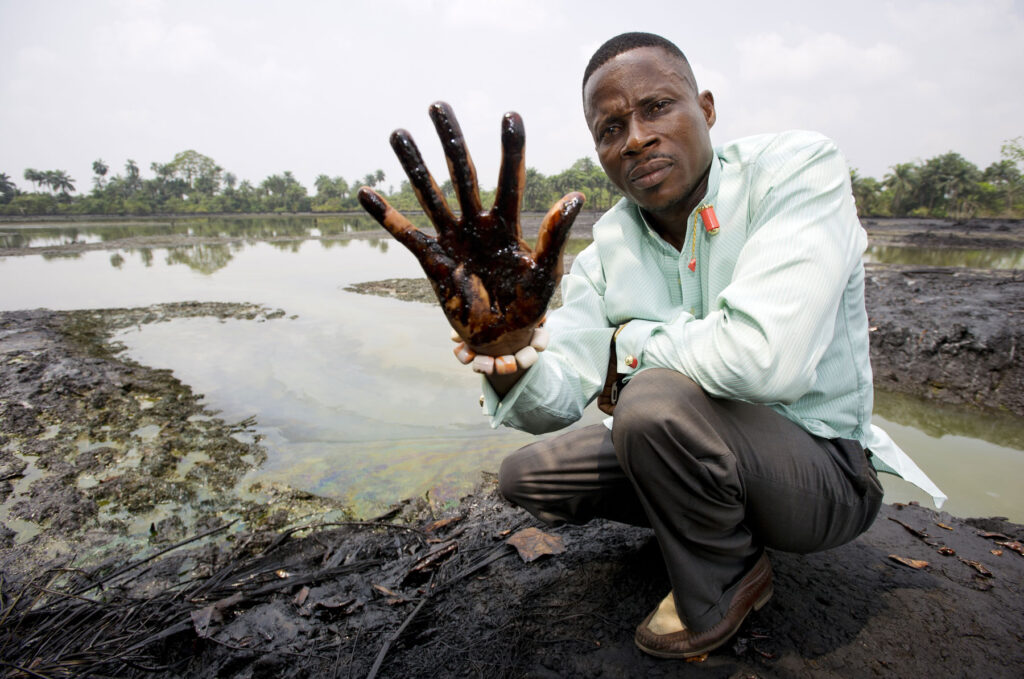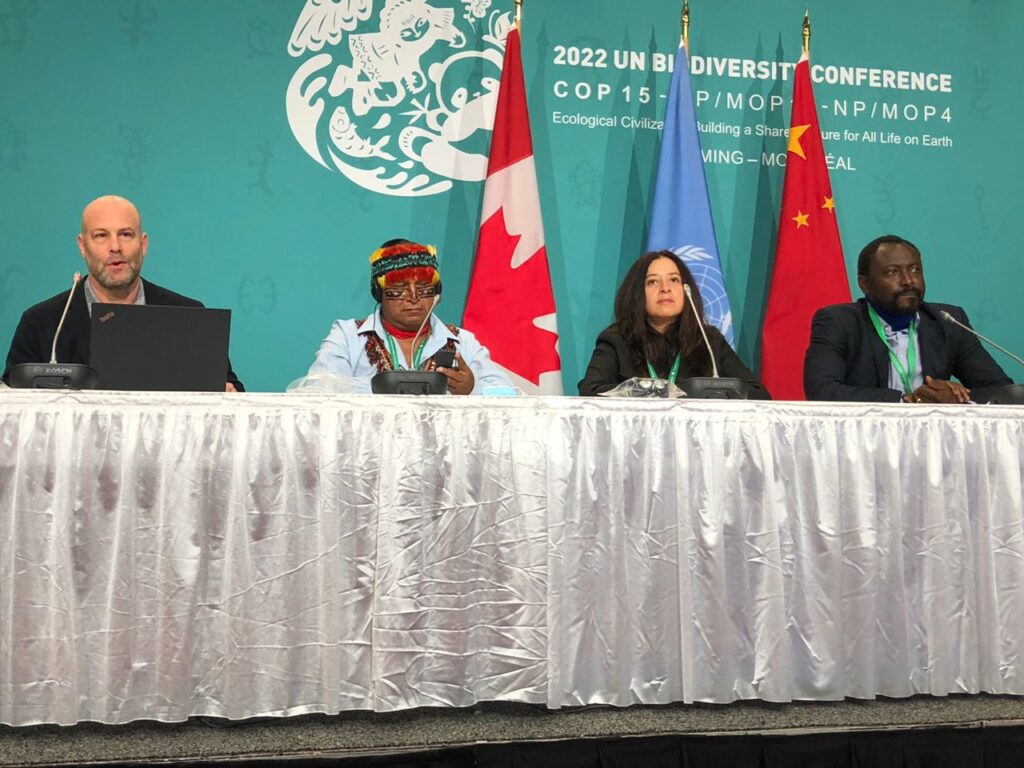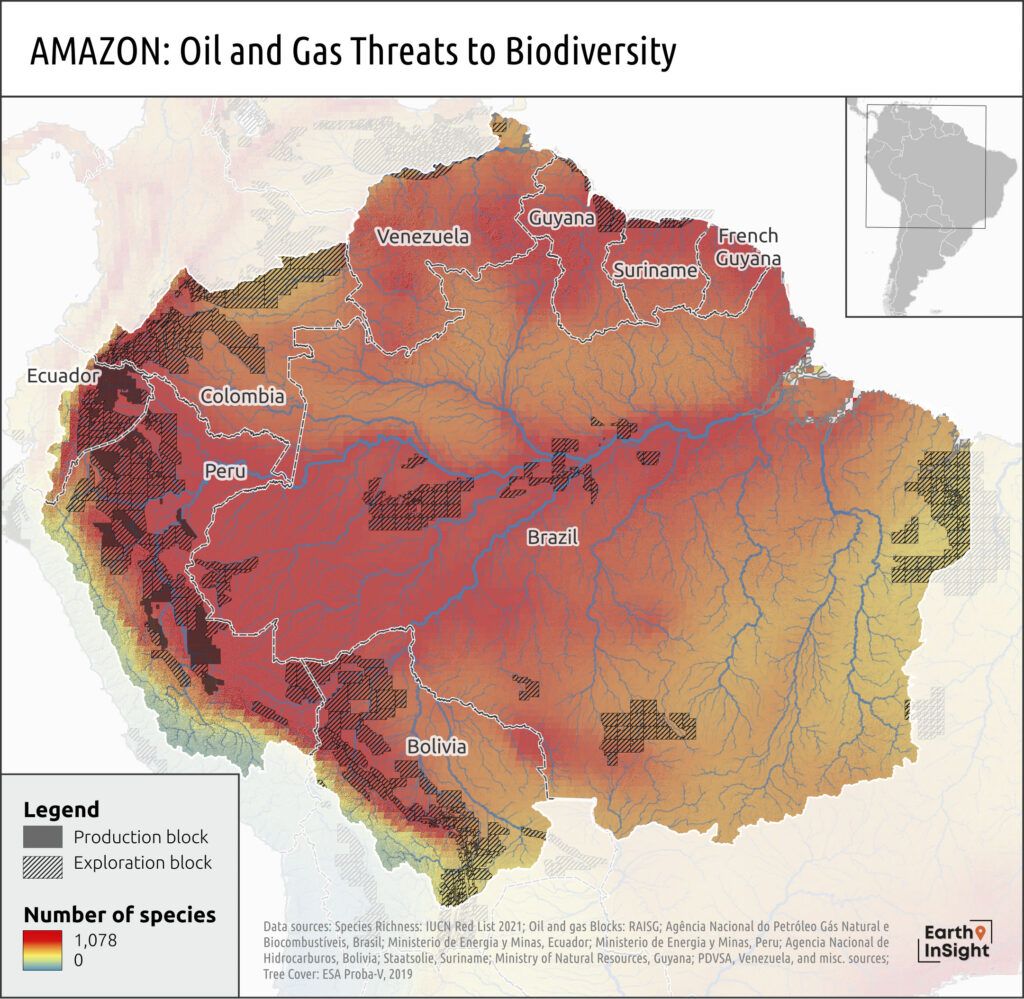January 18, 2023 – For immediate distribution
As the World Economic Forum Annual meeting kicks off in Davos, Indigenous leaders and regional environmental organizations from the Congo and Amazon regions are calling on banks and other financial institutions to commit to end financing for new oil and gas expansion. According to new research, an area nearly six times the size of the United Kingdom – has now been designated as oil and gas blocks in the Amazon and Congo Basins. These regions represent the two largest tropical rainforests in the world and fossil fuel expansion is a rapidly accelerating existential threat to global climate stability and biodiversity, and to tens of millions of Indigenous People and other local community members who live inside areas slated for oil and gas exploration and development. The lending practices of banks and financial institutions – many gathered in Davos – are critical factors that will determine whether oil and gas expansion happens in these vital forest basins.
The International Energy Agency (IEA) has stated that in order to limit global warming to within the threshold of 1.5°C, no further fossil fuel expansion must take place. However, with current forecasts, in 2030, governments’ production plans and projections would lead to around 240% more coal, 57% more oil, and 71% more gas than would be consistent with limiting global warming to 1.5°C.
In a new report titled Crisis Point: Oil and Gas Expansion Threats to Amazon and Congo Basin Tropical Forests and Communities, published by Earth InSight, research findings underscore the global need to end financing for all oil and gas expansion – especially in these and other critical forest basins and ecosystems.
Oil and gas drilling is a gateway to deforestation and new policies and financial mechanisms are critical to prevent the expansion of oil and gas in critical areas. Solutions and reference points include:
“The Congo Basin is a place of immense beauty and its life sustaining capacities not only support tens of millions of people and hundreds of diverse cultures who live here, but this vital region is also critical for global climate stability. The science is clear – oil and gas expansion must not be happening anywhere and it is vital that the fossil fuel industry stay out of the Congo Basin region and for regional leaders to chart a different path and invest in energy security and renewable energy instead of pathways that will fragment and pollute the forest,” says Harrison Nnoko, Executive President (CEO) at AJESH Cameroon
“Indigenous peoples have stewarded and helped keep Amazonia in balance for thousands of years. Oil and gas expansion is one threat among many types of industrial extractivism to the Indigenous People and cultures, forests, lands, and rivers of our rainforest. Put simply, there is no place for new oil and gas drilling in the Amazon if we are to preserve the integrity of our rainforests and if the rights of Indigenous People are to be respected,” says José Gregorio Díaz Mirabal, Coordinator General of COICA, the Pan-Amazonian Indigenous Federation
“We are in the midst of a climate and biodiversity emergency. Time is running out and bold action is required to address the scale of the challenge we face. Banks and financial institutions are critical linchpins whose lending practices can either align with what the world needs now or continue adding fuel to the fire.” says Tyson Miller, Director of Earth InSight
“Two thirds of oil and gas exports from the Amazon rainforest go to the United States, with US and European banks complicit in the build out of this industry and related human rights and environmental impacts. It is critical for more banks to follow the lead of BNP Paribas and ING in their commitments to end financing for oil and gas expansion in the Amazon and globally,” says Matt Krogh, Co-Director of the Amazon program at Stand.earth
A short video highlighting the need for banks and members of the World Economic Forum to end financing for oil and gas expansion globally and urgently in the Amazon and Congo basins can be found here.
The Crisis Point report was released in December 2022 during UN Biodiversity COP 15. It offers a stark reality check regarding the threat that oil and gas expansion plans pose to the world’s two largest tropical rainforests and the Indigenous and local communities who live within them. This research also builds on findings that were co-published with Rainforest Foundation UK in Congo in the Crosshairs and released at the UN COP 27 climate conference in November 2022. It also builds upon the research of RAISG and the Amazonia Under Pressure series as well as Amazonia Against the Clock published by the Amazonia for Life: 80% by 2025 coalition.
# # #
Media Contacts:
Earth Insight: Tyson Miller, Executive Director: +1828-279-2343 / tyson@earth-insight.org
Rainforest Foundation UK: Joe Eisen, Executive Director, +44 774 746 2452 / joe@rainforestuk.org and Jak Wagnon, Communications Coordinator +447976039214 / jakw@rainforestuk.org
Stand.earth: Matt Krogh, Amazon Program Co-Director, +1 360-820-2938 mattkrogh@stand.earth
Media interviews with Amazonian and/or Congolese partners available upon request
Earth Insight: Tyson Miller, Executive Director: +1828-279-2343 / tyson@earth-insight.org
Rainforest Foundation UK: Joe Eisen, Executive Director, +44 774 746 2452 / joe@rainforestuk.org and Jak Wagnon, Communications Coordinator +447976039214 / jakw@rainforestuk.org
Stand.earth: Matt Krogh, Amazon Program Co-Director, +1 360-820-2938 mattkrogh@stand.earth
Media interviews with Amazonian and/or Congolese partners available upon request







